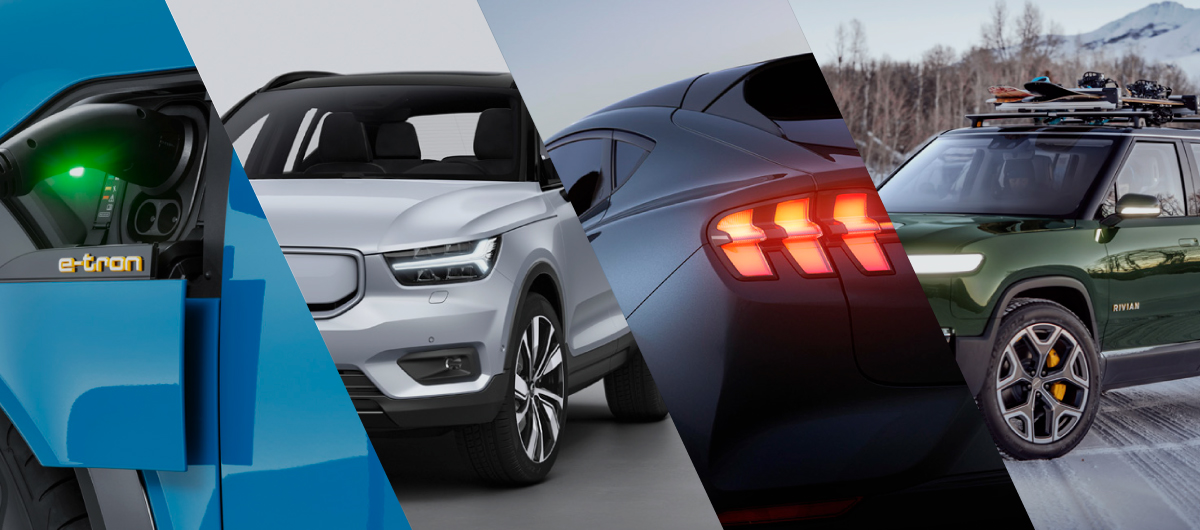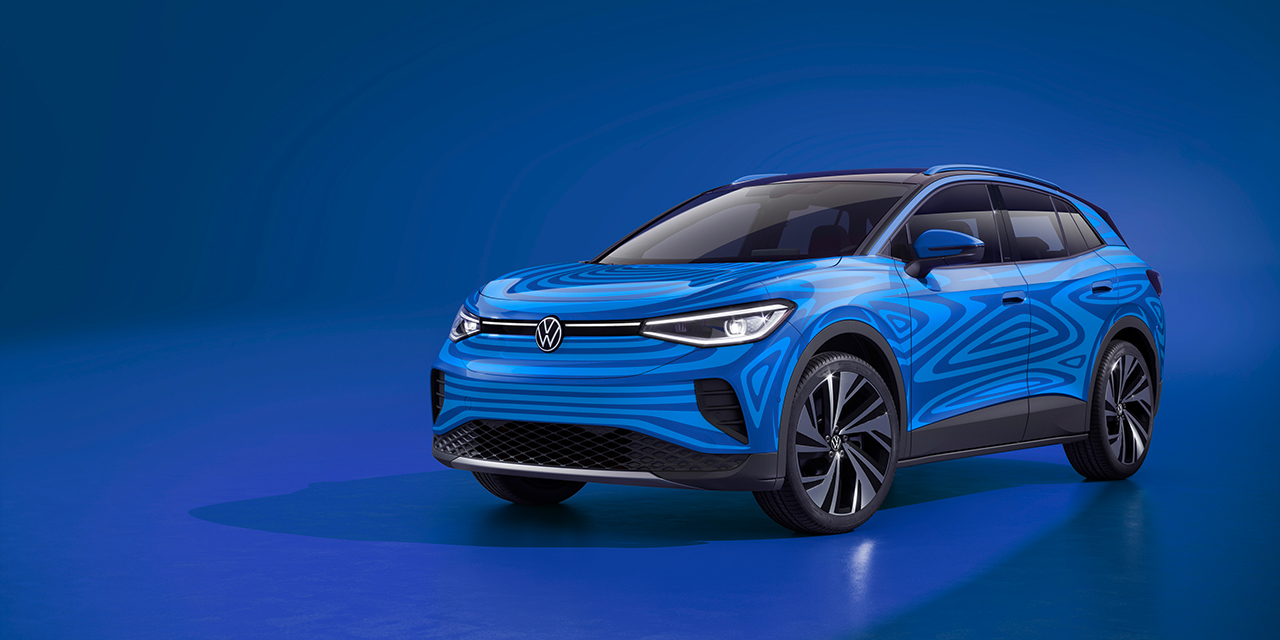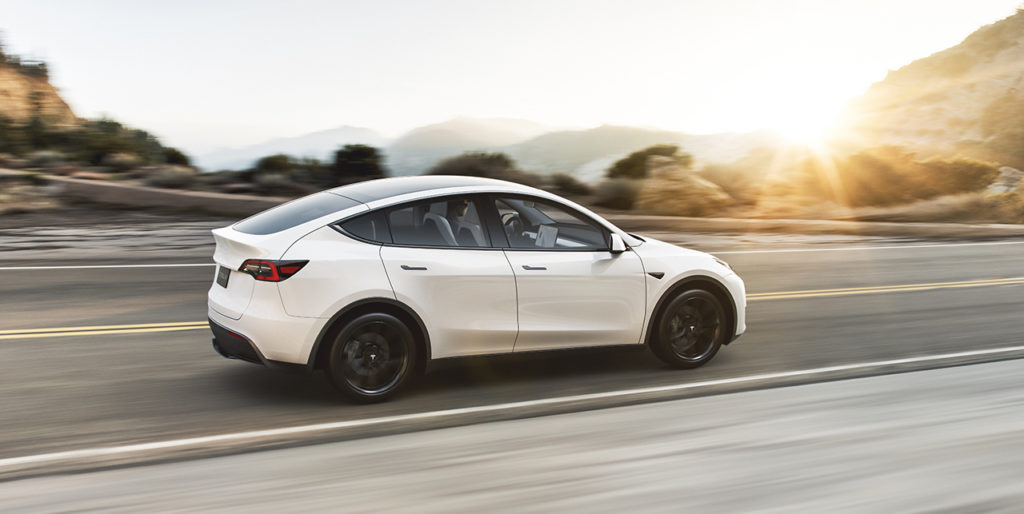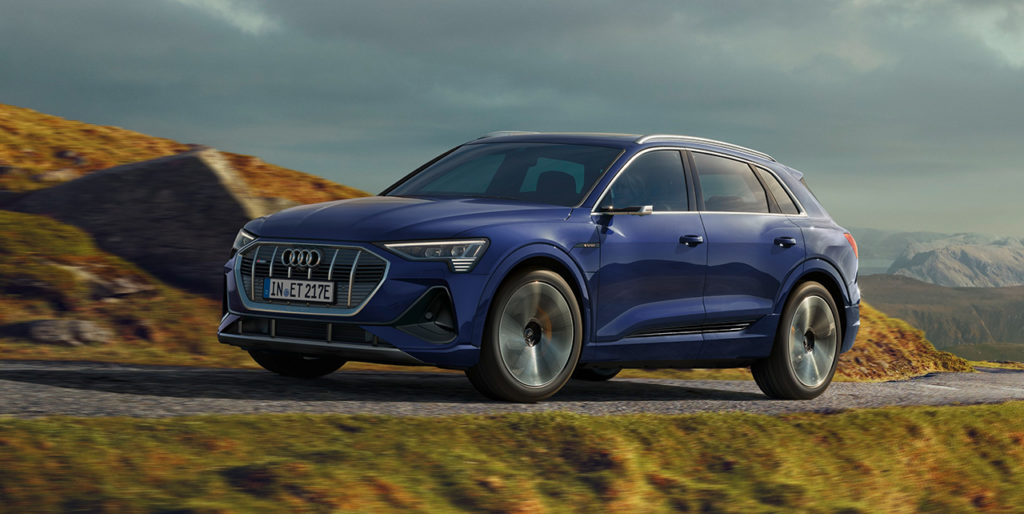
The New E-SUVs on the Block
This year has been heralded as the coming of age for electric vehicles, but until recently, buyers had been limited to a handful of electric options. Thanks to new manufacturer investments, advancements in battery technology, and diversification of sizes and price points, there are now more choices than ever. Today, the crossover segment has become the litmus test of new electric models. Let’s take a look at six new electric SUVs that could show up on your block in 2020:
While some model launches have been impacted by the crisis, the specifications and dates of availability in this article reference the information available as of the end of April but could be subject to change. Listed in order of affordability.

Volkswagen ID.4 SUV
Availability: late 2020 or early 2021
Range: more than 250 miles
Seats: 5
Cargo Space: not yet released
Starting MSRP: $35,000 (estimated)
Federal Tax Credit: up to $7,500
The ID.4 electric SUV is the first in a series of Volkswagen’s ID branded all-electric vehicles. The automaker has said it will invest $12.3 billion in electromobility, with up to 1.5 million EVs expected to be built as early as 2025. The ID.4 will launch as a rear-wheel drive model in the next 12 months, with a dual-motor all-wheel drive model to come later.
With the starting price potentially as low as $27,500 after full federal tax credit, this small electric SUV could be mighty contender for value-minded drivers. As Volkswagen puts it, “electric vehicles for millions, not just millionaires.” While details are still sparse, they have mentioned that the ID.4 has a battery positioned near the center of the underbody for optimum driving dynamics and will be operated primarily using touch surfaces and intelligent voice control.

Ford Mustang Mach-E SUV
Availability: late 2020. Reservations available now.
Range: up to 300 Miles
Seats: 5
Cargo Space: 59.6 ft3 (with seat area)
Starting MSRP: $43,895
Federal Tax Credit: up to $7,500
Leveraging the heritage of the iconic Mustang family, Ford has built an all-electric Mustang SUV that balances impressive performance and true SUV qualities. The Mach-E will be the first vehicle based on Ford’s dedicated EV platform, featuring a large lithium-ion battery pack that serves as the floorboard, creating a flat load floor. It will produce 332 horsepower and 417 lb-ft of torque, hitting 0–60 in 5 seconds, whereas a 459 horsepower GT model will get there in 3 seconds. Its spacious interior is complimented by a convenient 4.8 ft3 washable front trunk with drain, designed for tailgating and gear-toting.
While the Premium model is slated for late 2020, a lower priced Select model will be available in early 2021 and the GT model in Spring 2021. You can reserve one now for a $500 deposit. While the Mach-E’s standard battery will provide 240 miles of range, an extended-range battery will get over 300 miles range in rear-wheel-drive models. All-wheel-drive versions will also be available, but you’ll give up some range for that option.

Tesla Model Y
Availability: deliveries began in March. Order online.
Range: up 316 miles (long range model)
Seats: up to 7
Cargo Space: 68 ft3 (with seat area)
Starting MSRP: $52,990 (long range model)
Federal Tax Credit: no longer available
Just as the now-ubiquitous Model 3 offered the Tesla experience at half the price of the Model S, the Model Y now makes owning a Tesla SUV more affordable than its older sibling, the Model X. With deliveries already started in March, one can order either a Long Range or Performance trim of the Model Y now, with a Standard Range version, rumored to be as low as $40,000, available in early 2021.
Tesla’s electric compact crossover has room for up to seven adults with an optional third row, and its second row seats fold flat for versatile storage. One notable aesthetic feature is an expansive all-glass roof that provides a seamless view of the sky. The Model Y’s All-Wheel Drive has two independent electric motors for the front and back wheels, making it a capable snow or off-road vehicle. And of course, no Tesla would be complete without a ludicrous 0–60 in 3.5 seconds.

Volvo XC40 Recharge
Availability: Late 2020. Reservations available now.
Range: 200+ miles
Seats: 5
Cargo Space: 14.5 ft3 Front Trunk, 47.2 ft3 Interior (with seat area)
Starting MSRP: $55,500 (estimated)
Federal Tax Credit: up to $7,500
Volvo’s first purely electric vehicle looks to be a competitive bid in the fast-growing electric SUV market. For a company that already hangs its hat on safety, the XC40 Recharge is no exception, with details such as a “safety cage” for the battery pack. Volvo has also made a substantial environmental pledge, estimating that half of its cars will be electric by 2025, and that 95 percent of the XC40 Recharge, including its battery, can be recycled.
While the XC40 has great performance stats, such as dual 402 horsepower front and rear motors, some of the most interesting features are more smartphone than car. Volvo partnered with Google to integrate services such as maps, voice-control, and other behavioral learning tech into the car. Perhaps most intriguing is its car sharing capability: the Volvo On Call app allows you to give others instant access to your car for certain periods of time via their mobile phone.

Rivian R1T Pickup and R1S SUV
Availability: Late 2020 or Early 2021. Available for preorder now.
Range: up to 400+ miles
Seats: R1T: 5; R1S: up to 7
R1T Cargo Space: 11.1 ft3 Front Trunk; 12.4 ft3 Gear Tunnel; 4.5 ft-long Bed
R1S Cargo Space: 11.1 ft3 Front Trunk; 7.1 ft3 Rear Bin; Rear Cargo Area Unknown
Starting MSRP: R1T: $69,000; R1S: $72,500
Federal Tax Credit: up to $7,500
American startup brand Rivian wants to own the category of Electric Adventure Vehicles with their R1T Pickup Truck and R1S SUV set to launch within the next year. Both models promise up to 400+ miles of driving range, up to 750 horsepower and a supercar-like 0–60 in 3 seconds. Among other standout features are a wading depth of over three feet and a quad-motor system, enabling a 360 degree “tank turn” by using independently powered motors on each wheel.
The R1T Pickup can tow up to 11,000 pounds and the R1S up to 7,700. Both have interesting cargo storage options, such as a 12.4 cubic foot “gear tunnel” that passes through the width of the pickup truck. For a $1,000 deposit, you can reserve either on their website. Backed with investments by Ford and Amazon, Rivian is no small startup. In fact, you may be seeing your Amazon package delivered in one of 100,000 Rivian-built electric delivery vans in 2021.

Audi e-tron SUV
Availability: Released in 2019. Locally available.
Range: 204 Miles
Seats: 5
Cargo Space: 57 ft3 (with seat area)
Starting MSRP: $74,800
Federal Tax Credit: up to $7,500
The e-tron SUV is Audi’s first purely electric vehicle, as well as one of the first in a quickly growing field of crossover style EVs. Exemplifying the company’s luxury pedigree, it comes with plenty of premium features. With standard all-wheel drive and a 4000-pound towing capacity, it meets the capabilities that many SUV buyers would expect. It also boasts unparalleled driving dynamics due to its low-positioned battery and dual motors set on each axle.
While the 2019 e-tron’s 200-plus-mile range isn’t earth shattering, the manufacturer points out that it’s more than enough for most daily commutes. Judging by Audi’s European models, the States could see 2020 e-tron models with updated battery packs providing more driving range, as well as a new all electric Sportback that features a sloped roofline and cranked up torque.
